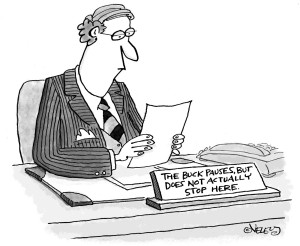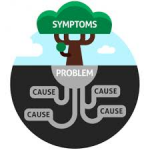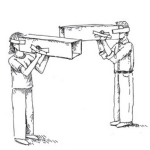

The concept of accountability means different things to different people. Some think that it’s simply doing what you say you will do. Others proclaim it’s when things reach the point where “the buck stops here!”
After working with hundreds of business owners and entrepreneurs, I have found that true accountability occurs only when it is engrained in the company’s culture and it always starts with the leadership team.
Sadly, most organizations don’t truly foster a culture of accountability. Employees are left to interpret what they’re accountable for, which can lead to confusion, frustration and apathy.
Accountability Starts at the Top
Take for example, a publicly traded company in the food industry that inflated inventory costs to reduce taxes several years back. The Treasurer manipulated the numbers, but it was the culture in the company that enabled his actions. The CEO looked the other way, but eventually the SEC and the IRS caught up to them. They were fined heavily and several executives were fired. The CEO and Treasurer were also criminally charged.
A less dramatic breach of accountability occurs when leaders are unwilling to fire disruptive employees. I reference such a case in a recent article: “Is your team solving the real issues…or just symptoms?” This case involved a Controller who had a toxic personality that was killing the morale of employees, leading to several good employees who left the company.
She was eventually fired, but the CEO demonstrated lack of accountability by refusing to take action sooner (he was over a year too late).
Clarify Roles & Responsibility to help Foster Real Accountability
In addition to creating a culture of accountability, there must be clarity of each employee’s roles and responsibilities. This goes well beyond job descriptions that typically just contain job activities. Accountability is deeper – it reflects what outcomes each one is responsible for. The Accountability Chart is a great tool to help clarify this for your organization.
What grade would you give your organization for overall accountability? If not an “A,” then what will it take to get there? Perhaps this is something to highlight and discuss at your next leadership meeting.





























































































11710 Plaza America Drive, Suite 2000 Reston, VA 20190
703.278.CORE (2673)
Leave a Reply